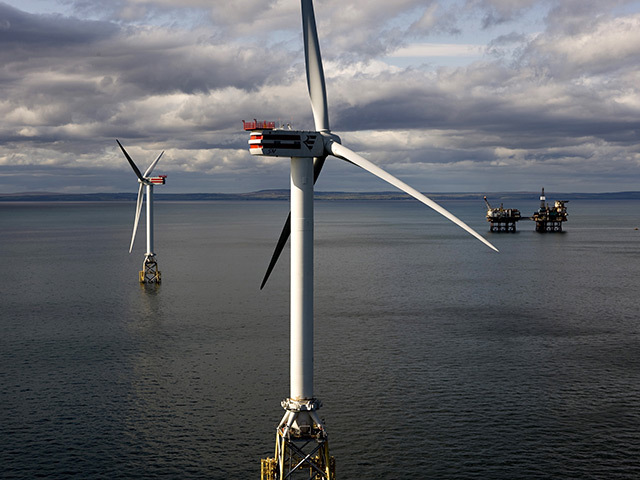
The giant Beatrice offshore windfarm in the Moray Firth has been given a major boost after being offered a contract for difference under the Government’s energy reform plans.
The 664MW project by SSE and Repsol had missed out on the Government shortlist in December of ‘affordable’ projects.
But today the 277-turbine scheme, planned for alongside the Beatrice oil field eight miles off the Caithness coast, was named among the first eight renewable projects to secure a contract to supply energy.
It marks a boost for the project, just weeks after developer SSE said it was scaling back its involvement in the project amid concerns over a lack of confidence in the UK offshore wind industry.
“It is greatly encouraging to see a Scottish offshore wind project selected for an early investment contract by the Department of Energy and Climate Change,” said Scottish Renewables’ Lindsay Leask
“Having received planning consent from the Scottish Government in March, to now get an early Contract for Difference gives the Beatrice project the certainty of support we’ve been calling for from the UK Government.
“With our huge offshore wind resource, it is not unrealistic to expect to see a number of Scottish offshore wind projects receive planning consent and secure financial support by the end of the year.
“This decision will help kick-start the offshore wind sector in Scotland, which has the potential to provide thousands of jobs and billions of pounds of inward investment to our country, while also making a significant contribution to Scotland’s ambitious 2020 renewable energy targets.”
Beatrice was one of eight new projects offered contracts for difference under the UK Government’s new electricity market reform programme – the only one in Scotland to land a deal.
Offshore wind projects at Burbo Bank, Norfolk, Yorkshire and in the Irish Sea off Walney Island were offered contracts, along iwth biomass projects at Drax’ power station in Selby, the Lynemouth project in Northumberland and a dedicated plant in Middlesborough.
“These contracts for major renewable electricity projects mark a new stage in Britain’s green energy investment boom,” said Energy Secretary Ed Davey.
“By themselves they will bring green jobs and growth across the UK, but they are a significant part of our efforts to give Britain cleaner and more secure energy.
“These are the first investments from our reforms to build the world’s first low carbon electricity market – reforms which will see competition and markets attract tens of billions of pounds of vital energy investment whilst reducing the costs of clean energy to consumers.”
Last month planning permission for the project, which could create up to 5000 jobs and power more than a million homes, was approved for Beatrice and the Moray Offshre Renewables Limited farm.
The total private sector investment in the eight projects approved for contracts – which together will generate 4.5GW of renewable energy – is £12billion.
Davey said the announcement would give confidence to investors in green energy schemes.
“Record levels of energy investment are at the forefront of the Government’s infrastructure programme and are filling the massive gap we inherited,” he said.
“It’s practical reforms like these that will keep the lights on and tackle climate change, by giving investors more certainty.”
However, the government could face legal action over its decision to not support another part of the Drax conversion scheme.
The plant’s producers said it had commenced legal action after the Government recommended Drax use the direct subsidy scheme for the conversion of its third unit at the Yorkshire facility.
“Nothing has changed, as far as our plans are concerned, between being deemed eligible in December and now,” said Drax chief executive Dorothy Thompson.
“We have, therefore, commenced legal proceedings to challenge the decision.”
RenewableUK, the trade association for wind, wave and tidal power, welcomed the news but said Britain needs far more wind farms if it wants to secure its energy supply.
Deputy chief executive Maf Smith said: “We could see over 100,000 people working in the wind and marine energy sector over the next decade, and Government backing here will give the supply chain confidence to invest in the UK, with costs falling as the clean energy industry develops and scales up.
“However, we need far more onshore and offshore wind projects over the next decade if we’re not to find our energy security threatened, and the UK further exposed to price shocks from imported fossil fuels, so it’s important that the Contracts for Difference regime works for all renewable energy projects, not just those that have secured early contracts.”
Recommended for you
